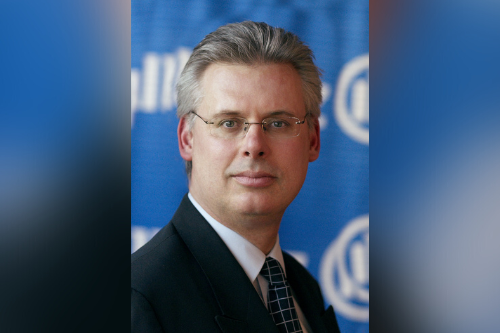

In Glasgow, the COP26 climate conference has released a draft agreement. The document includes references to the phasing out of coal and fossil fuel subsidies and commitments to stick to the 1.5 degrees Celsius temperature rise limit. Another positive from the conference: the surprise announcement by China and the United States of cooperation to cut emissions from methane, transport, energy and industry.
However, many experts say Australia’s climate commitments are lacking. Prime Minister Scott Morrison agreed to a 35% emissions cut by 2030, well behind the US, the UK and the European Union. The government has refused to phase out coal.
So, how do Australia’s insurance companies stack-up when it comes to their climate change policies?
“Insurance companies, as major investors, can, through the use of their investment decisions, help bring about the changes that are needed,” said Nicholas Scofield (pictured), chief corporate affairs officer for Allianz Australia during an interview with IB about his company’s approach to climate change and emissions targets.
During COP26, the Insure Our Future campaign released its fifth annual scorecard on insurance, fossil fuels and climate change. The report ranks 30 leading primary insurance companies on their policies towards insuring and investing in coal, oil and gas.
Allianz was at the top of the list. Allianz ranked number one for ending fossil fuel insurance, third best for ending fossil fuel investment and second best for other climate policies.
However, Insure Our Future global coordinator Peter Bosshard said much more needs to be done by the entire insurance industry.
“Insurance companies need to follow the science and stop insuring all new coal and oil and gas projects if they want to regain their credibility as climate leaders,” he said at the COP26 conference.
Scofield explained that the Allianz policy is a combination of both financial and moral imperatives.
“So whether it’s investing in renewable energies or whether it’s divesting out of thermal coal and emissions intense activity, and again, if that’s where the weight of global investment funds are moving then it also becomes not only the right thing to do but the financially sensible thing to do as well,” he said.
Allianz launched its first climate change strategy in 2005 and has reduced carbon emissions by 35% per employee since 2010. By 2019, nearly half of the electricity Allianz used globally came from renewable sources. Globally, the company has invested in about 100 wind and solar parks.
Scofield said after his company achieved carbon neutrality in 2012 it began seriously examining what energy industries it was insuring and investing in. In 2018, Allianz stopped both investing in and insuring any new stand-alone thermal coal mines or thermal coal generated electricity plants.
“In May this year, we broadened and accelerated that, so from July 01, 2021, the first new restriction commenced: We ceased underwriting dedicated thermal coal infrastructure, so for example, a rail service that purely takes thermal coal from a mine to port. From January 01, 2023, we will cease investing in or underwriting any business [above certain quantity thresholds] that achieves more than 25% of its revenue from thermal coal mining or thermal coal electricity generation,” he said.
However, despite demonstrated leadership in reducing its coal commitment, Allianz does still invest in and insure gas projects. Scofield said it’s worth distinguishing between gas as a fuel – where most emissions come from - and gas as a feedstock.
“I think there’s recognition, particularly if you look at the projections of the International Energy Agency (IEA), that gas will continue to play a role, albeit at some point diminishing, but over a much longer time period than coal, particularly because gas is used in two major ways, one is as a fossil fuel for the production of electricity, the other is as a feedstock in the production of things like fertilizers and plastics.”
Scofield said until there are alternatives for gas as a feedstock it has a more appropriate role to play than a fossil fuel like coal.
The Australian government has been widely criticised for lacking the policy to reach its emission targets. Scofield said that while he’s pleased Australia finally committed to net zero by 2050, he said that policy leavers are probably of secondary importance.
“Achieving the target is going to come about by decarbonizing the electricity sector, the energy sector, decarbonizing transport and decarbonizing agriculture,” he said. “Those things are going to come about through technological change.”
He said countries are using different combinations of regulations, taxation or technology to try and reach the net zero target.
“How you help accelerate that technology? Whether it’s through carbon prices, whether it’s through direct regulation of activity, or whether it’s through investment in those technologies, which probably best describes the approach the Australian government is taking,” he said. “At the end of the day, I think that we’re all driving towards the same outcome.”
However, Scofield said there’s a long way to go.
“Australia can play its part, but in terms of reaching the aspirations of limiting global warming to 1.5 degrees and the aspirations of the Paris Agreement there needs to be a lot more progress among the world’s largest emitters if any of those objectives are going to be achieved,” he concluded.
